CONTACTAbout UsCAREER OPPORTUNITIESADVERTISE WITH USPRIVACY POLICYPRIVACY PREFERENCESTERMS OF USELEGAL NOTICE
© 2025 Equal Entertainment LLC.
All Rights reserved
All Rights reserved
By continuing to use our site, you agree to our Privacy Policy and Terms of Use.
We need your help
Your support makes The Advocate's original LGBTQ+ reporting possible. Become a member today to help us continue this work.
Your support makes The Advocate's original LGBTQ+ reporting possible. Become a member today to help us continue this work.
COMMENTARY: I woke up last Wednesday screaming -- partly because I had a nightmare that someone was trying to kill me with a computer mouse and partly because it was 8:45 A.M. and I had a 10:00 A.M. flight to catch. Bizarre dreams are a common side affect of the medication I take to control my HIV. Though far less frequent than they used to be, each dream is still very intense. Picture your worst and best dreams in high definition, on an IMAX screen and with real actors running around you -- that's close to what it's like. It's an unavoidable and sometimes humorous part of my new normal.
This particular dream was no doubt the result of having read through some of the colorful feedback and numerous emails in response to my last column. E-mails that ranged from supportive to ones with the subject line "SLUT." Shocking even to me, I had received 17 death threats based solely on that column. These were e-mails from strangers, flat out proclaiming their desire to kill me so I would stop "killing others," as they put it.
On this morning, in my rush to the airport, I read through a few more. I have somehow started to find a certain curiosity in examining hate mail I receive -- how could someone equate me to a "slut," "sexual predator" or "HIV-deserving pedophile," as a nice man from Ohio recently corresponded? On this Wednesday, I received a note that concluded I should go to jail and not be allowed to have sex ever again. Little did they know I was living part of that sentence already. That e-mail, ironically, was followed by an AmFAR e-mail blast, asking for support as they celebrated another year of progressive research for HIV/AIDS. The one thing these two missives had in common -- much like the ones calling for my death, and all the ones before -- was that they each expressed a different perspective on the message surrounding HIV/AIDS. Particularly the message this year, it being the 30th anniversary since HIV was first documented in the United States.
I had contemplated this message for months. For years, really. This message, for me, remained so hard to articulate. I truly believe there is power in the conversation around HIV/AIDS today, but I have struggled to elaborate beyond that. What message should this conversation be supporting, debating, or developing? What makes this disease so very different from any other illness? Why is it still so hard talk about? How would conversation help? On one hand, HIV is manageable; in its 30 years they have made advancements unlike any other terminal illness of its kind. But on the other hand, there is this huge social stigma, perception, and cloud of preconceived notions that follow even the healthiest HIV-positive person. This message somehow had to articulate that difference, being sensitive to everything in between.
By some miracle I made my flight that morning, and as I sat down in the front row of the short 45-minute trip north, I began a casual conversation with the woman next to me. She had just returned from seeing her mother in South Florida, who was diagnosed with cancer. She talked fondly of her father staying by her mother's side, and talked of her own husband who had helped through breast cancer. We eventually got on the topic of HIV. We discussed the common topics, nothing too intense and then, not planning on it, I asked her two questions. First one: "Would you date someone with cancer?" "Of course," she said, without skipping a beat. "Would you date someone with HIV?" I rattled off moments later. She began to answer and then paused. "Don't answer," I quickly said. The thoughts that happened within the ten seconds that she had paused, everything unsaid, each facial expression and subtle eye movement - that's what made HIV different, even 30 years later. We parted ways and I never found out what her answer would be. She simply said, "I get it."
Later that day, I thought about the impact those moments of pause had on me, how they manifest. It's no surprise that HIV is on the rise. Those moments of pause strike fear. People are still scared to get tested. People are still scared to disclose their status. The recent turmoil in Florida to keep funding for AIDS-related treatments is no doubt a result of so few being familiar with how managing this disease can sometimes be a financial and mental burden. It's a reminder of the stories I heard out of the Boston AIDS Coalition last year. Their clients who face discrimination in the workplace -- even today. Each instance the extension of words unspoken somewhere down the line.
That day was a long one, but before I knew it I was on my way back to New York City. This time without conversation. My mind, as it often gets, was tired of trying to figure out that message. Once home, I checked my voice mail. It was my doctor, his courtesy call following my check-up earlier that week. I had been having issues with my numbers. Nothing major, but my T-cells were lower than normal. Though my viral load was also low, an oddity and a good thing, as the virus seemed under control. A mental trick, as long as my viral load remained virtually undetectable (at its lowest numbers), things "seemed" better and I seemed clean. But this time his message revealed that the numbers had shifted --my viral was load up. It was detectable. I was detectable. In a split second, I felt completely different.
That one number was the other half of what makes this disease so unique. The virus and all it's perceived to be, for some ridiculous reason, can make you feel dirty, less than a person, and infected. I had gone from a successful business trip that day to feeling compromised and gross that night. Finding medication to address this fluctuation would be the easy part. Learning to feel like you used to -- clean, responsible, and attractive -- is a little more difficult. I'm still searching.
That night I found myself somber, trapped somewhere between the anxiety of the night's pending scary dreams and the discomfort in my own skin. As I reached into my bedside table and grabbed the bottle of Altripla, the pill I take each night, I had a moment. I realized the significance of that pill and others like it. A pill that 30 years ago was merely a dream. A pill that actually allowed us to no longer fear dying of AIDS. But because we are human and make things difficult, a new fear manifested. And there it was, this new fear, the common link between my reaction to that one number, the pause in a stranger's response earlier that day, the e-mail calling me a slut, and even those ridiculous 17 death threats - each a reminder that while we are no longer scared of dying from HIV, we are each in some way scared of living with it.
Scared of being infected. Scared of being judged. Scared of someone lying about his or her status. Scared of getting sick. Scared of a sex life forever changed. Scared of what your friends may think, for taking a chance on love. Scared of never finding love. Scared of being alone. Scared of a world scared of you.
And perhaps the message for me, in this 30th year, is the reality that there is no pill for fear. It will solely be reliant on the conversations we have and the responsibility we take to forge change. A responsibility we all will be held accountable for in the next 30 years, regardless of how scared we might be today.
From our Sponsors
Most Popular
Bizarre Epstein files reference to Trump, Putin, and oral sex with ‘Bubba’ draws scrutiny in Congress
November 14 2025 4:08 PM
True
Jeffrey Epstein’s brother says the ‘Bubba’ mentioned in Trump oral sex email is not Bill Clinton
November 16 2025 9:15 AM
True
Watch Now: Pride Today
Latest Stories
HIV-positive men stage 'Kiss-In' protest at U.S.-Mexico border (in photos)
December 01 2025 12:56 PM
Maryland community outraged after ‘bigoted’ early morning rainbow crosswalk removal
December 01 2025 11:07 AM
19 LGBTQ+ movies & TV shows coming in December 2025 & where to watch them
December 01 2025 9:00 AM
Gay NYC councilman running for Congress says America is at a crossroads
December 01 2025 6:52 AM
What the AIDS crisis stole from Black gay men
December 01 2025 6:00 AM
Japan's ban on marriage equality is constitutional, according to a Tokyo court
November 28 2025 4:59 PM
How a queer fashion show took on New York Fashion Week
November 28 2025 4:58 PM
8 LGBTQ+ films coming in 2026 that we can't wait to see
November 28 2025 12:00 PM
A guide to the 'Heated Rivalry' actors, characters, and gay storylines
November 28 2025 4:11 AM
Lavender marriages: What queer unions and relationships can teach us about love and safety
November 27 2025 9:43 PM

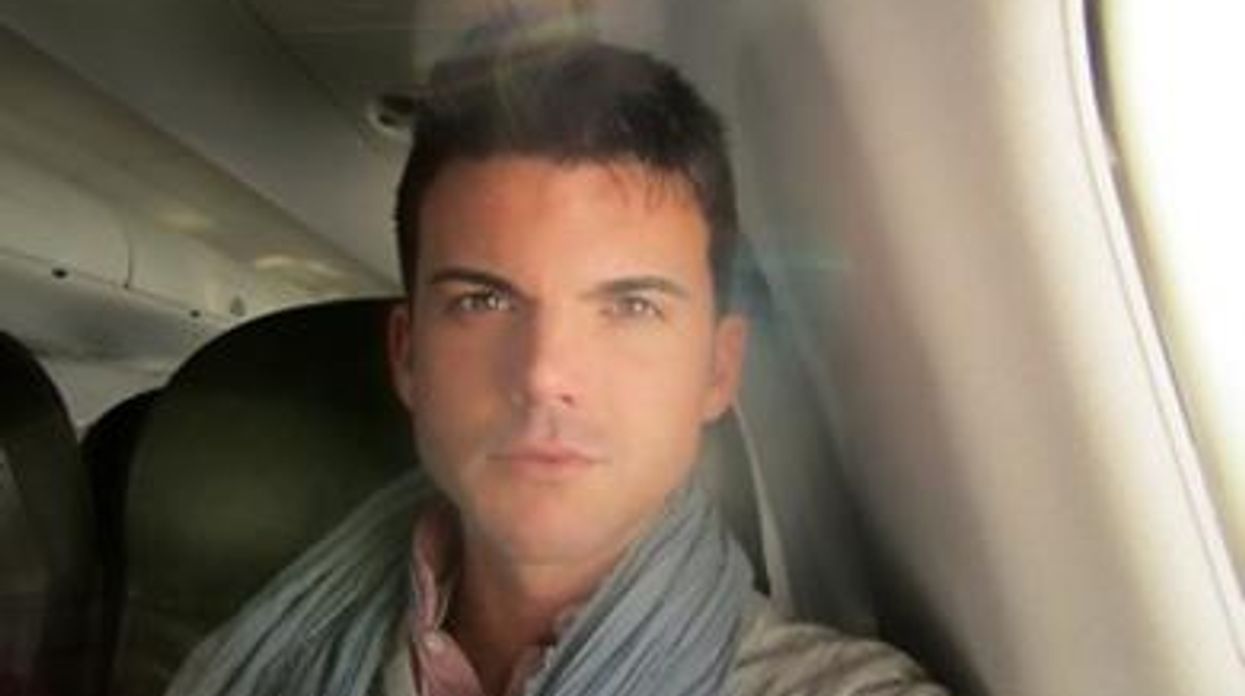






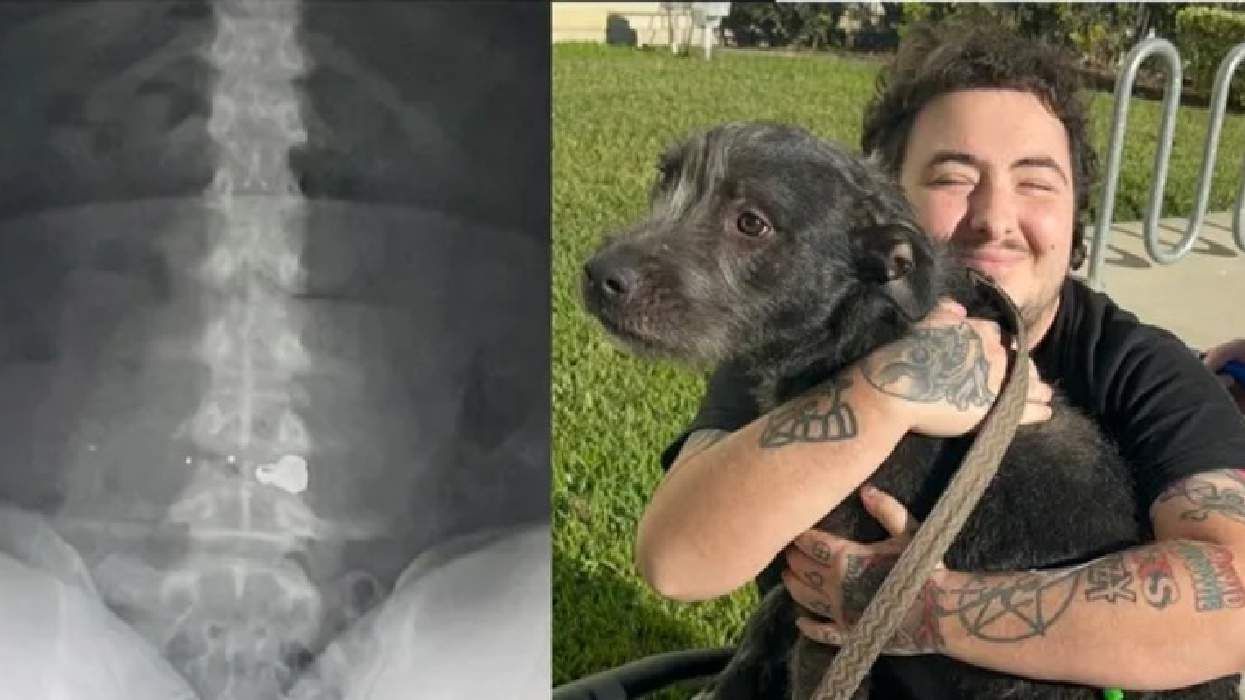
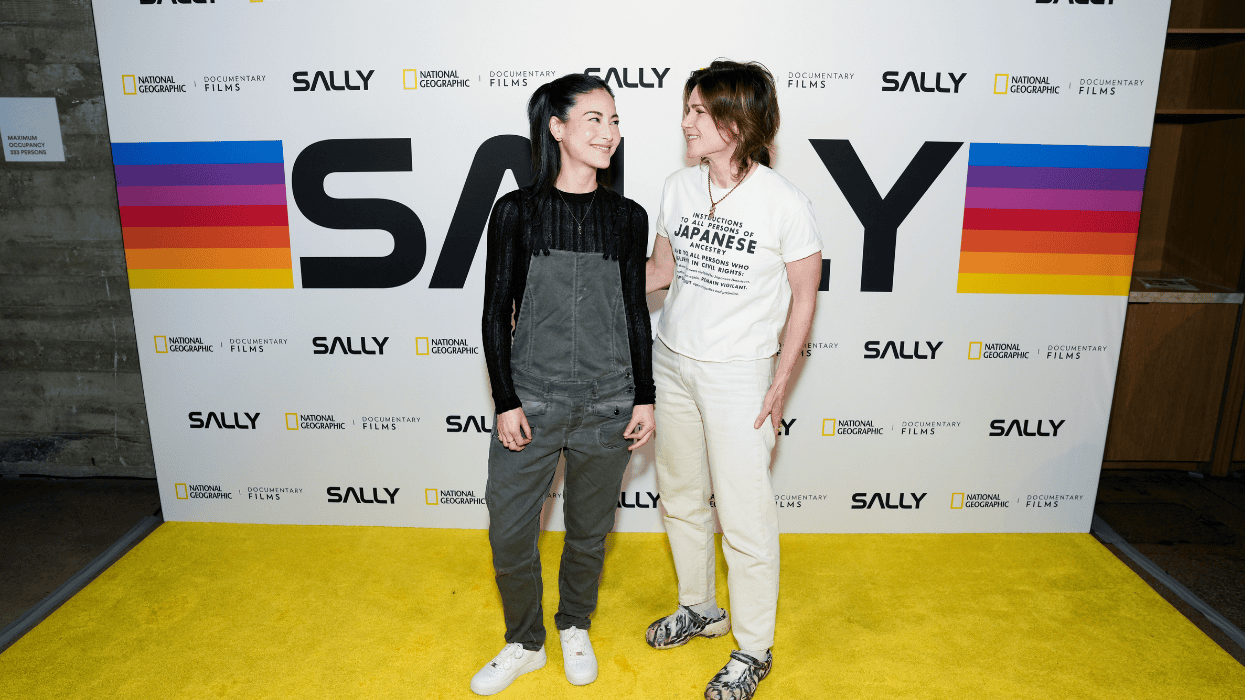
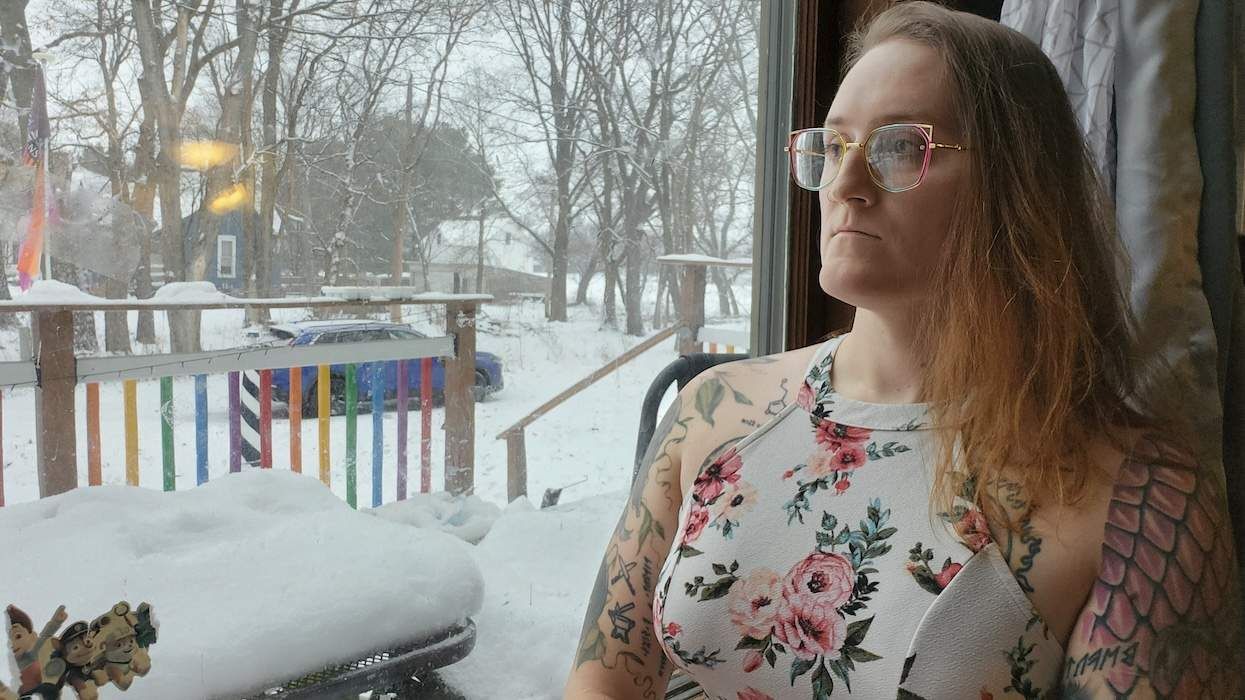

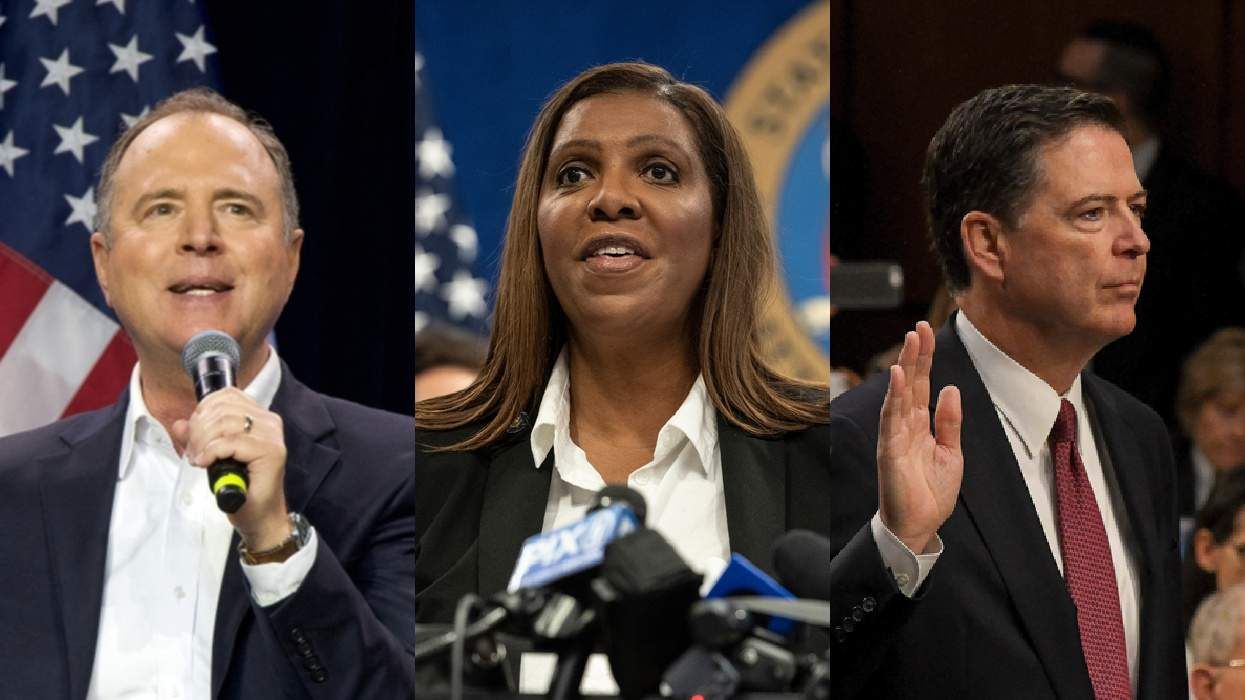

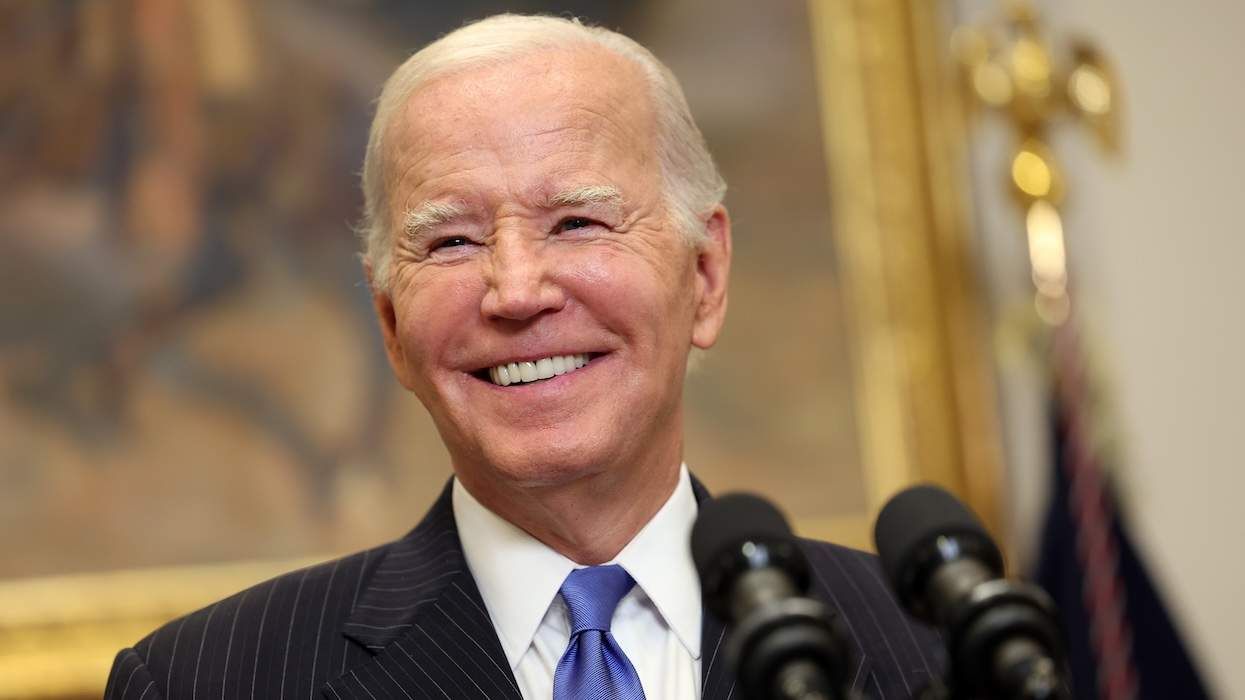
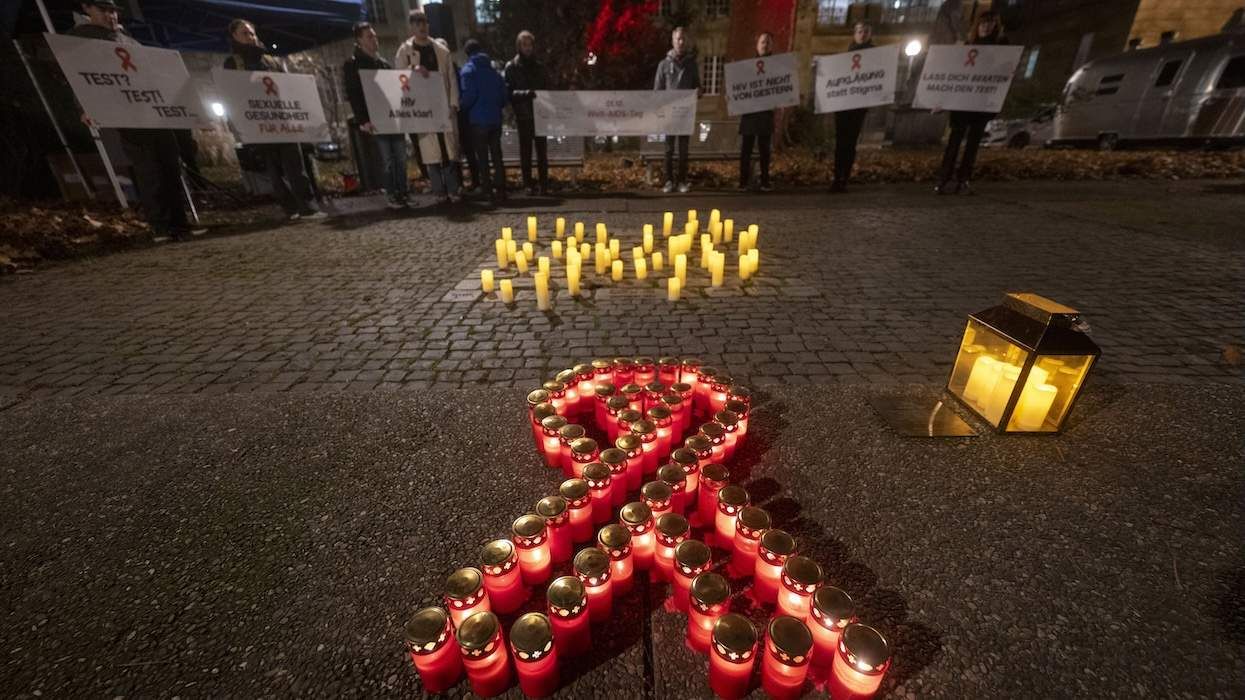



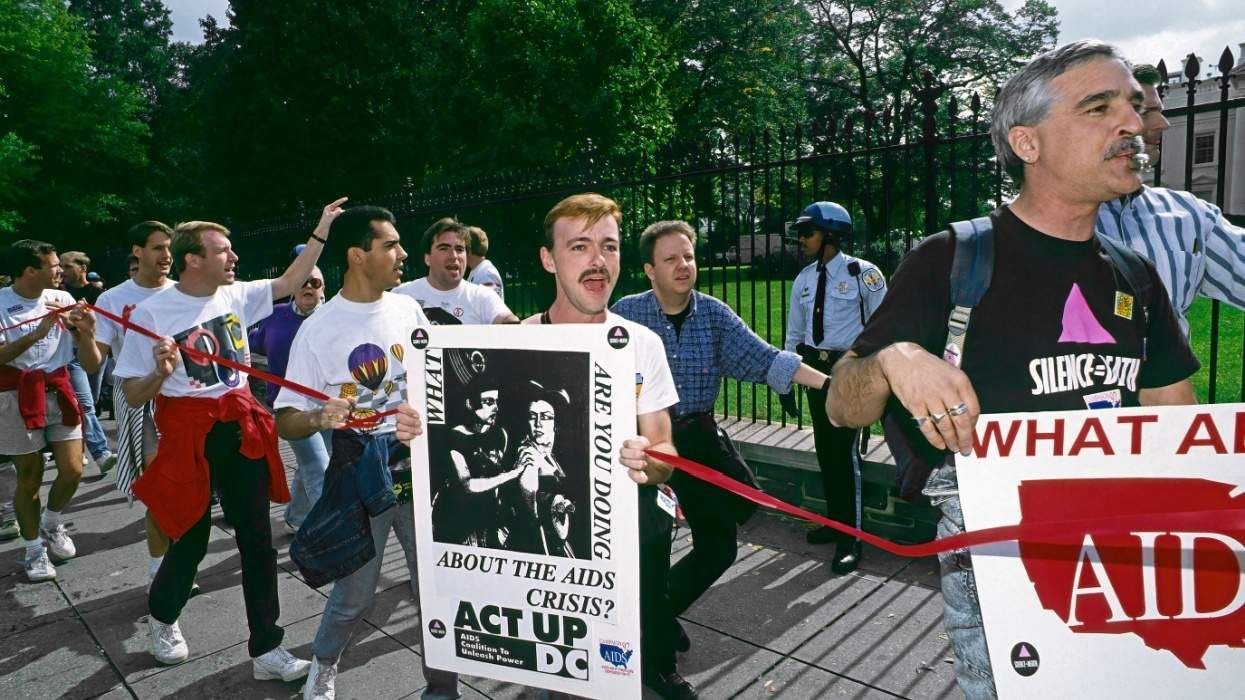

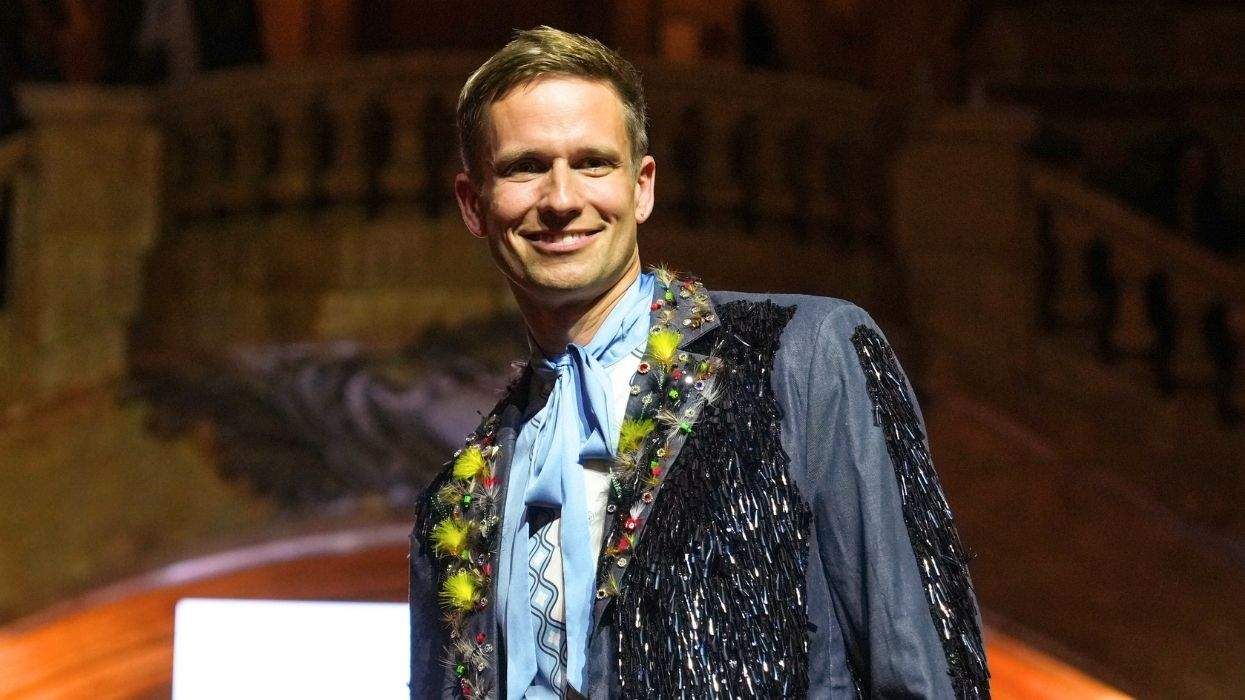
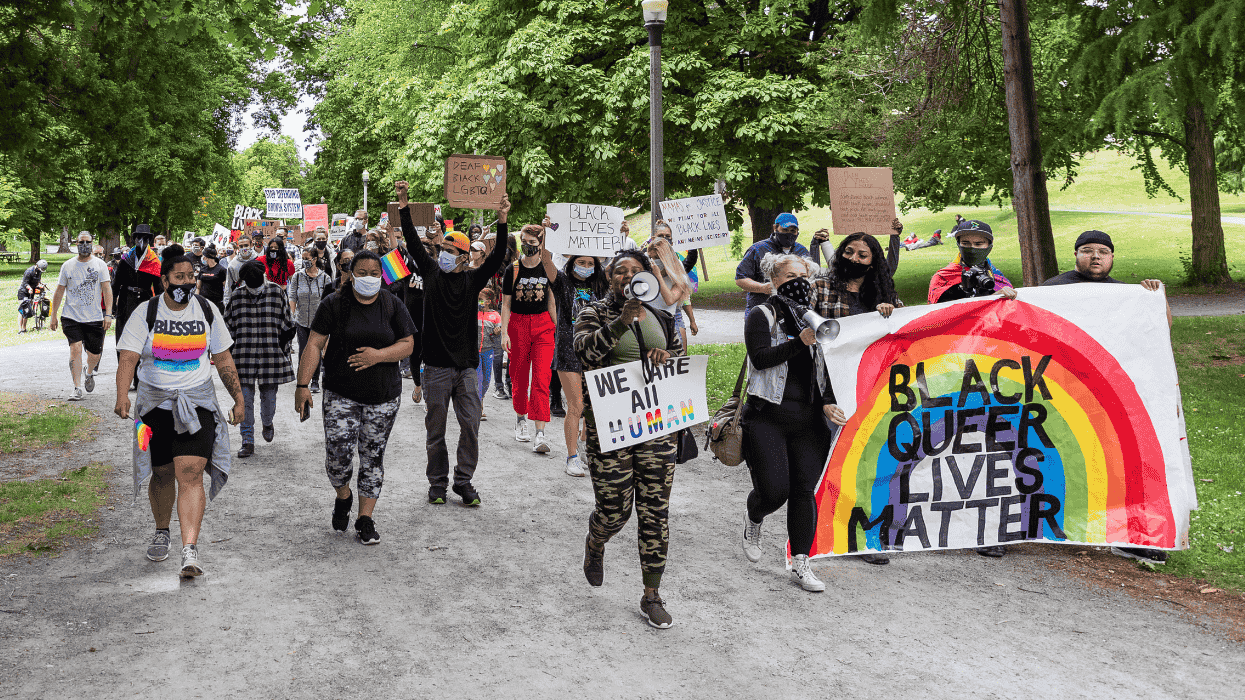
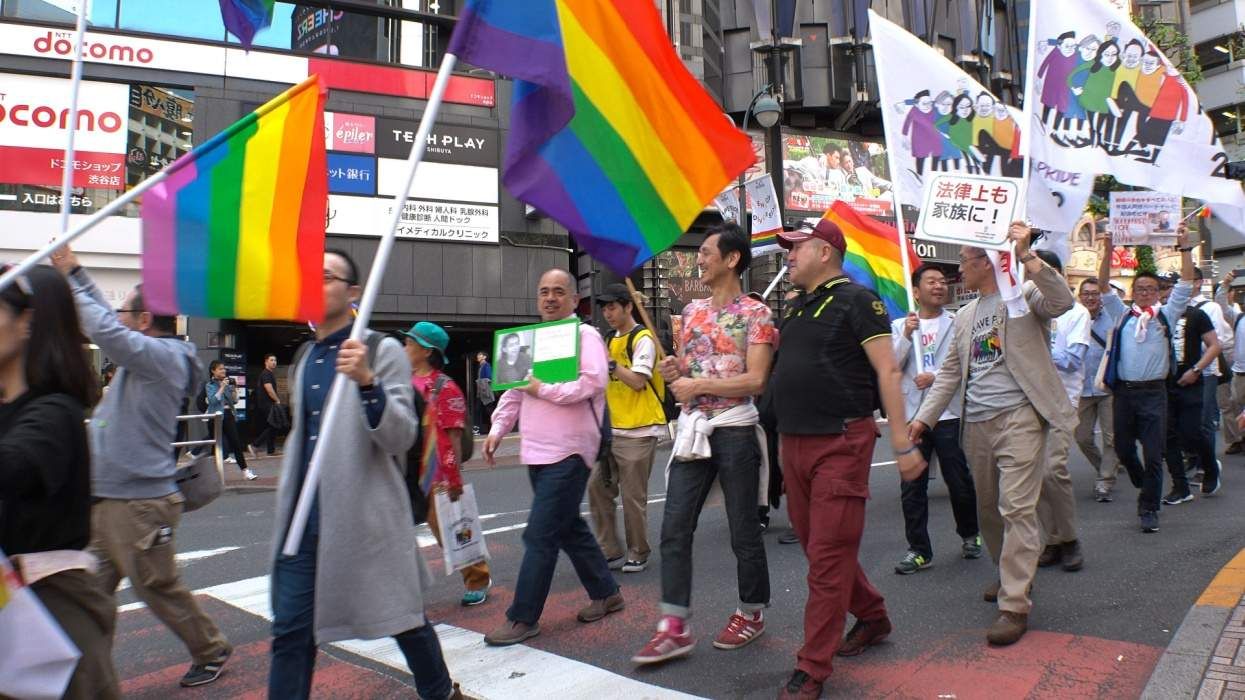
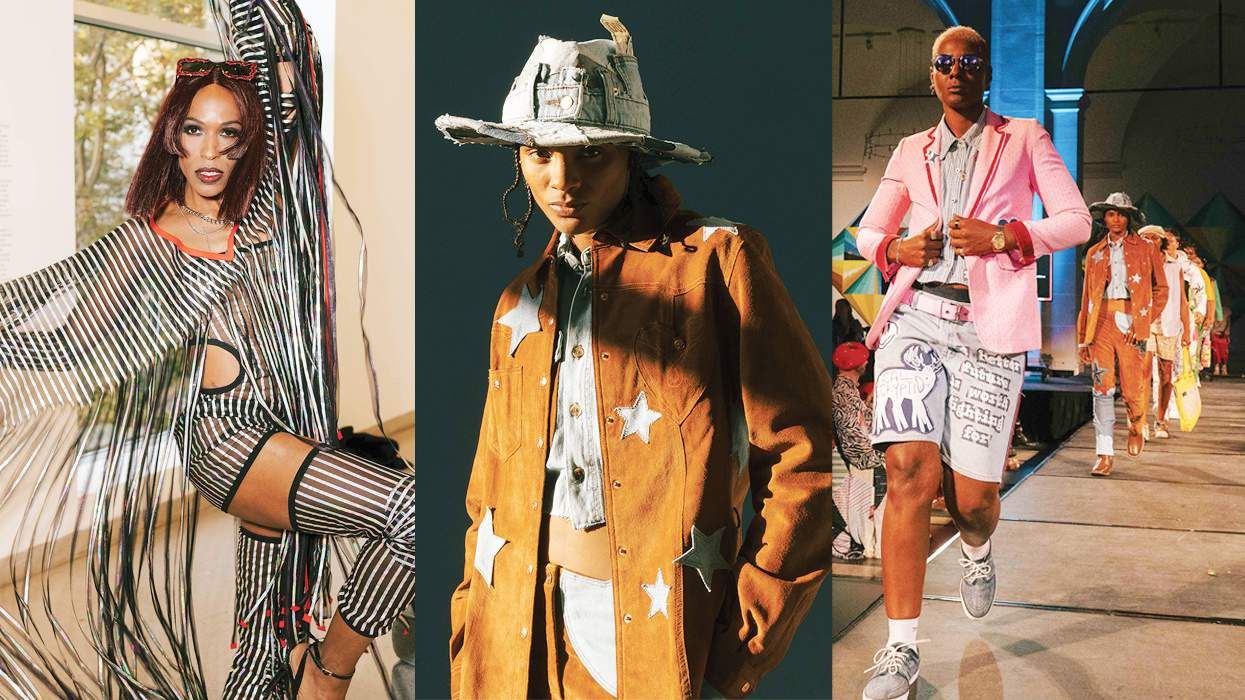


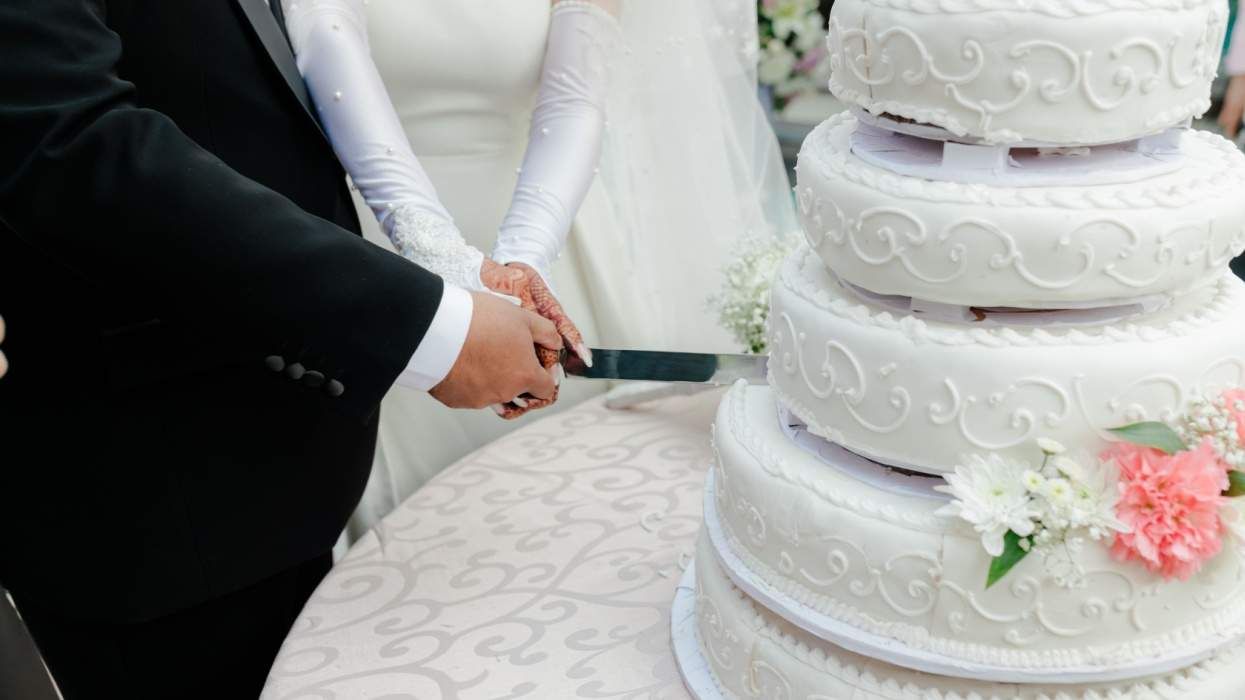















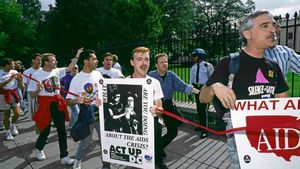
























Charlie Kirk DID say stoning gay people was the 'perfect law' — and these other heinous quotes